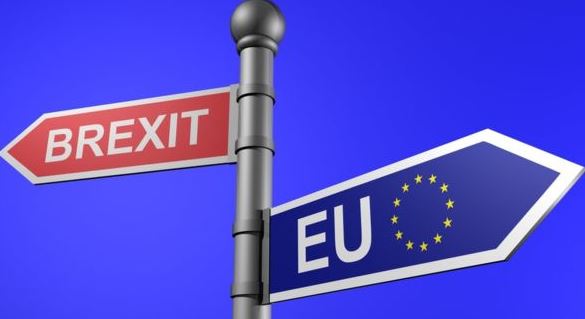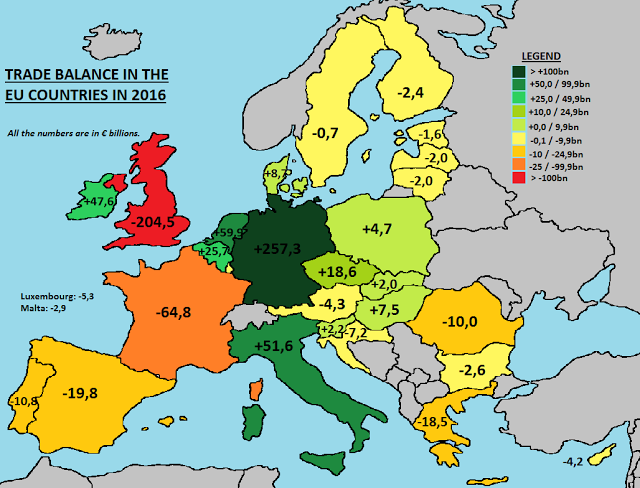by Nadeem Walayat
BrExit is the latest big story for the people of Britain to believe in, a story that has split the population in half between the Remainer’s and the Leavers. The BrExit vote was a reaction to the slow dissolution of what was once the world’s most powerful nation into just another bolt on to the European Union Superstate.

For Leavers BrExit is seen as a last ditched effort for Britain to resurrect its golden age. So whilst you read part 2 of my comprehensive BrExit analysis, remember that BrExit is just the latest story built on past stories of glory and it won’t be too long before we all move onto the next big story, as that is what humans do best, tell stories and believe them to be true, be they religious, political, social, personal, ethnic or economic stories. But today’s story is BrExit.
Also remember to read part 1 which covers the BrExit game that the European Union is likely to play, one of attempting to use the Scottish Nationalists as pawns in a proxy war to undermine Britain’s bargaining position during BrExit.
Sounds very romantic like sailing off into the sunset, with the likes of China and India expected to give Britain favourable trade deals. Though I suspect are planning their own Trojan horses to take advantage of a weak and desperate Britain.
Still the story sounds great, but of course it is just a story that the people of Britain tell themselves about Britain’s glorious trading past. I bet most reading this article believe it be true that Britain was once a great global trading nation, but it is just a story that does not stand up to close scrutiny, for all I see when I actually take a look into the past is that Britain was an Empire, an Imperial military nation not a trading nation. Britain would go to war to literally blast a whole nation’s fleet out of the water to get its way (China).
Then rape, pillage and steal the resources of whole nations, turning for instance the jewel in the British Empires crown India, that before the British invasion was once one of the richest countries on earth, after all that is why Britain fought to seize control it in the first place, turning India into a third world country by the time the British Raj left India.
Perhaps Britain can tell itself a new story of become a trading nation in the future, but it does not look like that Britain actually ever was a great trading nation in the past. In fact the only thing that Britain has been consistently good at trading in is weapons of war, it’s arm’s industry. And that it got lucky with the City of London being optimally positioned in the world’s 24 hour financial system.
Britain a Victim of the EU Single Market
Britain’s trade with Europe further illustrates that Britain has never been a trading nation, an illusion as following map shows the state of the European Union’s single market in terms of trade imbalances between member states that Britain is the sucker in the room, being conned to the tune of Euro 200billion that goes towards employing a net several millions of German, Italian and Eastern European workers. So the only additional thing to note to that which I have written before is that Italy also hugely benefits at Britain’s expense.

In terms of direct trade, the UK trade currently exports £230 billion to the EU and Imports £310 billion from the EU resulting in a huge £80 billion per year trade disparity. Basically a subsidy from the UK to the EU, mainly Germany as the above graph better illustrates which nations are beneficiaries of the Single Market and which are victims of the Single Market.

Furthermore the following table shows the top 5 EU beneficiary nations of trade with the UK, all of whom have a vested interest in retaining easy access to the UK market and therefore the UK can apply pressure to these nations during the negotiations in Britain’s advantage, especially where Germany, Spain, France and Italy are concerned.
UK Trade Deficit With EU Countries – Top 5
-£31bn
-£13bn
-£9bn
-£7bn
-£6bn
This further illustrates that Britain leaving the Single Market would significantly destabilise the Spanish and French economies due to the fact that both already run sizeable internal trade deficits against other EU economies and thus rely on the UK as one of the few markets that they operate a surplus against, and thus Britain can use this to its advantage in the negotiations.
What this £80 billion annual trade subsidy to the EU converts into is the UK paying to employ about 4 million EU workers residing IN the EU and this is in addition to the 3 million EU workers in the UK who act to depress wages for UK workers.
Therefore in terms of trade flows Britain has a major trump card up its sleeve that it should play, that of several million EU workers Britain pays for, as in Germany and Italy alone Britain probably employs more than 1 million workers servicing its trade deficit with these two nations whilst also being a heavy employer of Spanish, Belgium, French and Polish workers.
In totality Britain employs approaching 4 million EU workers on mainland Europe who produce goods for the British consumer, whilst at best UK exports to the EU probably employ some 1 million UK workers thus technically a clean break resulting in total collapse of trade with Europe would result in UK demand for nearly as many as a net 3 million new jobs whilst the EU would LOSE at least a net 3 million jobs with Germany, Spain, France and Italy being the hardest.
Furthermore, EU share of Britain’s exports has been on a declining trend trajectory for more than decade, falling from a peak of about 54% 10 years ago to 44% of UK exports today which illustrates that economic growth has been coming from OUTSIDE of the EU. Whilst remaining within the EU PREVENTS Britain from entering into trade deals which was made clear when the EU warned against Britain attempting informal trade talks with the Trump administration.
“I do not like that member states of the European Union, including those that are still a member state, are negotiating free trade agreements. This is an exclusive matter of the European Union.” – Juncker
“It’s very clear that in order to sign and have a bilateral agreement with third countries, the UK first needs to reach a settlement with the EU.” – Muscat
This is just one example of how if the EU holds true to its threats of punishing Britain! Yes there would be short-term turmoil as the UK economy adjusts to loss of access to the EU single market, but against this Britain would enjoy a short-term windfall from tariffs charged on trade of about £300 billion converting into a £30 billion tax revenue boost for the UK Treasury.
Playing the NATO Card
Russia is a permanent threat to Europe’s long eastern borders for which we only need look at the annexation of Crimea and the invasion and encroaching annexation of other eastern parts of the Ukraine, a process that looks set to continue for many more years and which I warned of in my following in-depth analysis of Feb 2014 before the annexations took place –
21 Feb 2014 – Ukraine 2014, Britain 2016, Scottish Independence Could Trigger Balkanisation of UK
What was unimaginable a few weeks ago has now become a crisis situation of mounting deaths, where with each death Ukraine takes a further step towards leaping over the edge of and into the abyss of where the likes of Syria stands today, as the consequence of what happens when nations rip themselves apart.
Click for larger image.
Click for larger image.
Ukraine tearing itself apart has huge implications for european stability as the conflict risks sparking unrest in bordering states most of which have their own separatists movements, especially Russia which therefore looks set to intervene militarily.
So NATO is another card Britain can play, as Britain has effectively been scammed by the EU into playing a disproportionately large role in the defence of Europe with thousands of troops stationed on Europe’s Eastern borders acting to deter Russian aggression that Britain could use against threats from the take-take states such as Poland and the Baltic states who repeatedly warn of tough negotiations ahead because they demand Britain be forced to continue to pay for the likes roads and highways be built in Poland as part of the £11 billion annual EU black hole that UK tax payers fund each year.













Leave A Comment